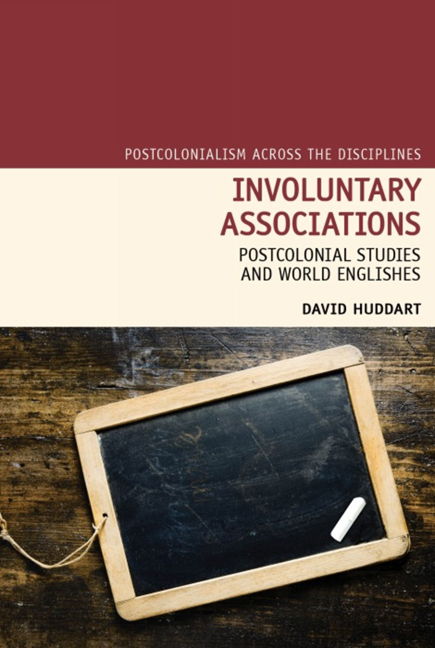Book contents
- Frontmatter
- Dedication
- Acknowledgements
- Contents
- Introduction
- 1 Involuntary Associations: ‘Postcolonial Studies’ and ‘World Englishes’
- 2 Grammars of Living Break their Tense: World Englishes and Cultural Translation
- 3 English in the Conversation of Mankind: World Englishes and Global Citizenship
- 4 Declarations of Linguistic Independence: The Postcolonial Dictionary
- 5 Writing after the End of Empire: Composition, Community, and Creativity
- 6 Slow Reading: The Opacity of World Literatures
- Conclusion: English Remains, Englishes Remain
- Bibliography
- Index
Introduction
- Frontmatter
- Dedication
- Acknowledgements
- Contents
- Introduction
- 1 Involuntary Associations: ‘Postcolonial Studies’ and ‘World Englishes’
- 2 Grammars of Living Break their Tense: World Englishes and Cultural Translation
- 3 English in the Conversation of Mankind: World Englishes and Global Citizenship
- 4 Declarations of Linguistic Independence: The Postcolonial Dictionary
- 5 Writing after the End of Empire: Composition, Community, and Creativity
- 6 Slow Reading: The Opacity of World Literatures
- Conclusion: English Remains, Englishes Remain
- Bibliography
- Index
Summary
So linguistic colonialism continues to flourish and expand, even while its political counterpart is dying out. Perhaps the phenomenon we observe in the former colonial lands, particularly in Africa, is only a reflection of a larger linguistic picture, one that tends inevitably toward a single tongue for world-wide use, one in which all men, swallowing their national pride, will be able to communicate directly and practically
Mario Pei, The Many Hues of English[T]he use of English in the world has no immediate connexion with the economic or political supremacy – past or present – of an English-speaking country.
Randolph Quirk, The Use of EnglishEnglish and Colonialism – Englishes and Postcolonialism?
Although English has long spread around the world, it is only in recent years that its diverse speakers have come to appreciate the unexpected consequences. One consequence is a perceived convergence, as Pei suggests, and resistance to that convergence derives largely from its identification with the colonialism that he mentions. Nonetheless, there is more to the picture of English worldwide than a dominant colonial tongue, and, while Quirk's suggestion must seem a little wishful, there are also increasing numbers of researchers, writers, and everyday users who are willing to entertain the idea that English has at least no necessary connection with any particular country or group of countries. That willingness might be somewhat less evident among those we usually consider native speakers, but their control of the situation is significantly weaker than it might have once seemed. The discourse of World Englishes seeks to re-imagine our understanding of the English language. The difference between error and innovation can no longer be decided through assumptions about the ‘ownership’ of the language. In fact, the language is beginning to be a medium of the expression of identity for more and more people in very different contexts. World English must be pluralized, which is why we think in terms of World Englishes. This book puts examples from these Englishes, in addition to the academic and other discourses that surround them, into dialogue with postcolonial studies, in the belief that while postcolonial studies has obviously had a great deal to say about the English language (and increasingly other colonial languages), much of what it has had to say has either directly concerned or been influenced by literary studies.
- Type
- Chapter
- Information
- Involuntary AssociationsPostcolonial Studies and World Englishes, pp. 1 - 16Publisher: Liverpool University PressPrint publication year: 2014



